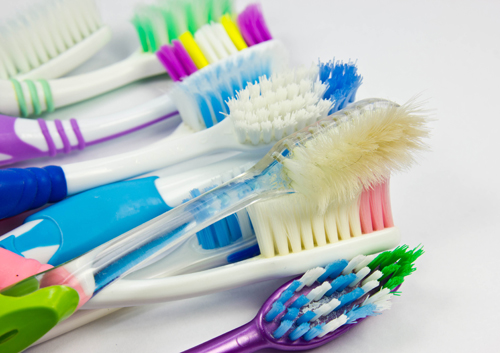September 17th, 2020

According to the International Congress of Oral Implantologists it is rare that your body will reject your dental implants. However, this does not mean that your dental implant will not fail. A successful dental implant is one that is placed in healthy bone and is properly cared for after the surgery takes place.
There is only one major reason why a dental implant would be rejected: a titanium allergy. The majority of dental implants are made with titanium because it has proven to be the most biologically compatible of all metals. On average, less than one percent of potential dental implant recipients reported an allergy to titanium.
Dental Implant Failure
The most common cause of dental implant failure in the upper and lower jaw is bacteria. Everyone has bacteria in their mouth. If you have bacteria in your jawbone at the time of your dental implant, it can spread from implant to implant, causing dental implant failure.
If you do not take proper care of your dental implants, that could also cause them to fail. You also have to take proper care of the implant and keep your mouth clean. The development of excessive bacteria around the implant and in surrounding tissues can lead to implant failure.
Teeth grinding is another reason dental implants fail. When you grind your teeth, it can move the implants out of position. Therefore, you should wear a mouthpiece when you go to sleep if you know you grind or clench.
If you take care of your implants by practicing good oral hygiene and visit our North Appleton office, you should not have any problems with your new dental implants. As always, ask Drs. Emily Ruthven and Daniel Cepeda about any questions or concerns you have about you dental implants.
September 10th, 2020

Drs. Emily Ruthven and Daniel Cepeda and our staff recommend that you replace your worn-out, germy toothbrush with a new one every three months. But most people either forget or resist getting rid of something that is still “working.”
Maybe if they had a few ideas for putting that old toothbrush to good use, more people would take our advice? To encourage good oral practices, we offer these ten fun things you can do with your used toothbrush:
1. Let your five-year-old budding Da Vinci create a masterpiece with some paint and your old toothbrush.
2. Scrub oily areas on your face with your toothbrush. The bristles are perfect for removing embedded dirt and oil that clogs pores.
3. Pamper your hamster by brushing his fur with an old toothbrush.
4. Dab a bit of Vaseline on the bristles and comb your eyelashes: instant glamour! Got dry, flaky lips? Slough away by using a toothbrush on your lips.
5. Remove the bristles: instant small plant stakes!
6. Old toothbrushes are great for spot-cleaning just about anything.
7. When nobody is around to scratch an unreachable itch on your back, turn that old toothbrush into your personal backscratcher.
8. Is your dog’s breath so bad that all your houseplants have died? Try brushing his teeth with your old toothbrush so that his kisses (and breath) are more tolerable.
9. Give your fish the cleanest tank in the neighborhood by scrubbing it with your old toothbrush.
10. Did you notice a few gray hairs sprouting from your hairline this morning? Old toothbrushes were made for touch-up dye jobs; works for dyeing your eyebrows, too!
September 3rd, 2020

Labor Day, celebrated on the first Monday each September here in the United States, is a holiday devoted to the American working community. The purpose of the holiday is honoring the country's workers and their contributions to the strength of our country as a whole.
How Labor Day Started
There is actually some debate as to the origins of Labor Day. It is uncertain whether Peter McGuire, a cofounder for the American Federation of Labor, or Matthew Maguire, who was the secretary of Central Labor Union of New York, had the great idea. However, the Central Labor Union's plans were what launched the first Labor Day in America.
The First Labor Day
The very first Labor Day was celebrated on September 5th, 1882. The Central Labor Union then held annual celebrations on September 5th for what they called a working man's holiday. By the year 1885, the Labor Day celebration had spread to many different industrial areas, and after that it began spreading to all industries in the United States.
Labor Day Today
Labor Day today is a huge United States holiday during which we honor the country's workers with a day of rest and relaxation or a day of picnics and parades. This holiday is truly one to honor the many people who work hard to contribute to the economic well-being of our great country!
Our team at North Appleton Dentistry hopes all of our patients celebrate Labor Day, and every holiday, safely and happily. Whether you stay in the North Appleton area, or travel out of town, have fun, and don't forget to brush!
August 20th, 2020

When we talk about teeth, every single one of yours counts. Whether you’ve lost a tooth due to injury or poor oral hygiene, it’s worth seeing Drs. Emily Ruthven and Daniel Cepeda to evaluate all your replacement options. If you don’t, you could suffer negative effects to your teeth, gums, jawbones, appearance, and self-esteem.
Depending on how many teeth are missing and where they are located, Drs. Emily Ruthven and Daniel Cepeda may suggest an implant, fixed bridge, or a removable bridge.
Addressing missing teeth as soon as possible is in your best interests. If you don't, the consequences might include:
- Shifting teeth: When you lose a tooth, the space it creates allows the neighboring teeth to drift and move out of alignment. A once-straight smile and correct bite can quickly turn into crooked teeth and a misaligned bite.
- Tooth decay and/or gum disease: After teeth have shifted, it can be harder to reach all areas around them to brush and floss properly. The buildup of bacteria and plaque can result in periodontal disease and the loss of your remaining teeth due to decay.
- Effect on jaws: Missing teeth alter your bite and how your teeth and jaws contact one another. This puts added strain on your jaw joint (TMJ) and can contribute to the development of TMJ disorder.
- Change in face and appearance: When you lose a tooth, your gums and your jawbone are no longer stimulated in that area. A dental implant replaces the root of a tooth or several teeth, and provides stimulation to prevent bone loss. If the root isn’t replaced, this can lead to deterioration of the jawbone and alteration of the shape and appearance of your face. Your face, especially the cheeks, can look older and more sunken.
Replacing missing teeth is an essential step for your physical and emotional health. If they are replaced in a timely manner at our North Appleton office, you’ll continue to have the same wonderful smile you’ve always had.




